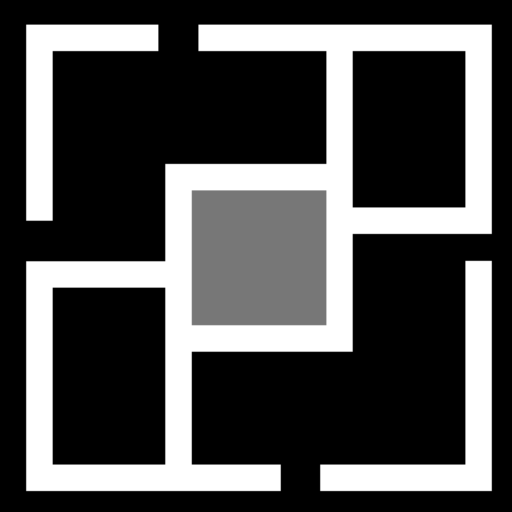Stop the Madness: Extended Hours Aren’t Helping
First off, let’s clear something up—working longer hours isn’t some magic formula for success. It’s actually a shortcut to burnout and mediocrity.
We’ve all been there, staring at a screen for hours on end, convincing ourselves that every extra minute is going to pay off.
But the truth is, after a certain point, your brain just isn’t firing on all cylinders anymore. You’re tired, your focus is shot, and your creative juices are drying up.
What you’re left with is a whole lot of time spent working, but not a lot to show for it.
This is where the idea of “Do Less, Then Obsess” comes into play.
By cutting down on the time you spend on routine could-delegate-or-automate tasks, you’re not just saving your energy—you’re freeing up your brain to actually work work.
The Trap? Always Being ‘On’
Tech has given us amazing tools to do our jobs better, and yet it’s also made it harder to disconnect.
You’ve got emails pinging at all hours, tasks popping up on your phone, and this constant pressure to always be available. The result? We end up stretching our work hours into infinity, thinking that if we just keep going, we’ll eventually get everything done.
Really, more hours doesn’t mean more output.
In fact, the longer you work, the more your productivity drops.
Your mind gets foggy, decision-making suffers, and instead of solving problems, you’re creating new ones-a vicious cycle, and the only way out is to break the habit of overextending yourself.
Tech could easily be your best friend—if you let it.
The beauty of modern technology is that it’s designed to take over repetitive, brain-numbing tasks that don’t need your unique expertise. Be it generating complex financial reports, predicting market trends based on historical data, or automatically curating content from multiple sources, there are tools that can handle these jobs with minimal input from you.
Automating what doesn’t need your brainpower, saves you time and protects your mental energy for the things that really matter. It’s like putting your work on autopilot, so you can focus on what’s truly important.
Being Smart About When to Be Lazy
Now, let’s loop back to being intentionally lazy.
When you’re staring down a big project, the temptation is to jump in and start working on every little thing at once. But that’s a recipe for disaster. Instead, take a step back and let yourself do nothing for a minute. Let your mind clear out all the clutter, and focus on what really needs to get done.
The truth is, the more you can automate and delegate, the less you have to worry about the small stuff. And when you don’t have to sweat the details, you’re free to obsess over the parts of your work that actually matter. You’re giving yourself the gift of time and focus, which are the two things you really need to do your best work.
When you do less, but with more intention, the quality of your work skyrockets.
It’s not just about crossing tasks off a list; it’s about making sure the tasks you do tackle are done right. This approach means you’re less likely to make mistakes because you’re not rushing through things.
You’re taking your time, focusing on the details, and ensuring that the end result is something you’re proud of. This ties back into why extended work hours don’t actually help.
When you work too much, your attention to detail slips. But when you work smarter—by doing less and obsessing over the important stuff—you produce work that’s not only completed faster but is also higher in quality.
Tech isn’t just about handling the grunt work. It’s also about making your entire workflow more efficient. Think about tools that help you prioritize tasks, block out distractions, and even schedule your day to maximize your peak productivity hours.
Tools like Causal (for complex data analysis) don’t just save you time; they make you better at your job by allowing you to focus on high-level thinking and strategy.
You’re not just using tech to get by—you’re using it to elevate your work.
There’s also a huge psychological benefit to this approach.
When you’re not bogged down by endless hours and meaningless tasks, your stress levels drop.
You’re not constantly worried about how you’re going to get everything done because the little stuff is already taken care of by tech. What’s left is the work that actually excites you, the stuff that challenges you and pushes you to grow.
This shift in mindset—from doing everything to doing what matters most—makes work feel less like a grind and more like something you’re genuinely invested in. And when you care about what you’re doing, the results speak for themselves.
At the end of the day, the goal is to reclaim your time. Instead of letting work spill over into every corner of your life, you draw clear lines. You say, “This is when I work, and this is when I don’t.” And because you’re working smarter—not harder—you actually have the luxury of sticking to those boundaries. When you let tech handle the busywork and do less so you can obsess over the critical tasks, you’re not just getting your work done—you’re getting your life back.
You’ve got time to kick back, dive into your favorite quirks, and soak up quality time with your tribe. And that balance? That’s what keeps you thriving, both in your career and personal life.
Quality Over Quantity
Here’s the kicker: when give up working extended hours in pursuits of a promotion, but with more intention, the quality of your work skyrockets.
It’s not just about crossing tasks off a list; it’s about making sure the tasks you do tackle are done right. This approach also means you’re less likely to make mistakes because you’re not rushing through things just to get them done.
You’re taking your time, focusing on the details, and ensuring that the end result is something you’re proud of.
This idea ties back into why extended work hours don’t actually help. When you work too much, your attention to detail slips.
Check this out; when you work smarter—doing less of what can be delegated or automated, and instead obsessing over the important stuff—you’re producing work that’s not only completed faster but is also higher in quality.
As we move forward, this approach will become even more important. The future of work isn’t about who logs the most hours or juggles the most tasks.
It’s about who can leverage technology and a smart approach to achieve the best results with the least stress. It’s about working in a way that’s sustainable, fulfilling, and, yes, a little bit lazy—because that’s where real efficiency lies.
In this new world, doing less isn’t just an option—it’s the key to doing your best work. By being intentionally lazy and letting tech take over the drudgery, you’re setting yourself up for success that’s not just about hitting targets but about enjoying the ride along the way.
The “Do Less, Then Obsess” principle is about shifting from the allure of busyness to the pursuit of meaningful excellence. By investing deeply in fewer key tasks, you nurture a career that thrives on quality, creativity, and enduring success.
Eliminate ineffective meetings.
Meetings often consume a significant portion of our work hours, frequently without yielding proportional benefits. Reclaiming this time begins with a deliberate strategy to streamline meetings, making them more efficient and purposeful.
Here are some ideas to make your meeting schedule work better:
- Reduce number and duration: Evaluate which meetings can be eliminated or replaced with brief email updates or quick chats.
- Shorten meeting times: A meeting scheduled for an hour often expands to fill that time, even if only 30 minutes are needed to address key points.
- Limit participants: Include only those who are essential to the core discussion. Others can receive a summary to stay informed without attending every session.
- Set clear purposes: Treat meetings as investments of your time. Each should have a clear purpose and expected outcomes.
- Use agendas: Circulate agendas in advance to help attendees prepare. Stick to the agenda to avoid veering off into irrelevant topics.
Cutting out pointless meetingsgives you more space to tackle big-picture strategy, dive into breakthrough projects, and brainstorming those next big ideas.
Studies show that reducing meeting time has tangible benefits. Employees who spend less time in unproductive meetings report higher job satisfaction and lower stress levels. They have more time for deep work, leading to better quality output and more meaningful contributions. 3
Streamlining meetings aligns with the principle of “Do Less, Then Obsess.”
Reducing unnecessary meetings allows us to focus more on important tasks that help us achieve our goals, leading to greater success at work and increased personal happiness.
Reclaiming your time and elevating your work to the next level doesn’t always come from the flashiest tools with the most buzz. Sometimes, it’s about finding those nuanced, under-the-radar platforms that align perfectly with your specific needs, helping you work smarter without the fanfare.
Tools designed to cater to niche demands across various modern careers
For those immersed in investment analysis, Causal offers a breath of fresh air compared to the usual spreadsheet grind. With its focus on clarity and simplicity, Causal lets you create dynamic financial models that automatically update with real-time data. Imagine building intricate projections and ‘what-if’ scenarios in minutes, with the added ability to visually communicate complex financial insights without the clutter of traditional spreadsheets.
In content creation and marketing, Lately is like having an AI-powered content strategist in your pocket. This platform repurposes long-form content into dozens of bite-sized social media posts, all tailored to your brand’s voice. You write once, and Lately transforms it into a multi-channel content plan, freeing you up to focus on the creative nuances rather than the tedious repackaging.
For project management that goes beyond the usual suspects, ClickUp is a powerhouse for creatives, startups, and anyone juggling multiple roles. It’s customizable to the point where it can handle everything from simple to-do lists to complex, multi-tiered project timelines, making it indispensable for managing both personal and professional tasks in one unified space.
And if your gig involves research or complex problem-solving, Roam Research is an invaluable tool that structures your thoughts and notes into a networked knowledge base. It’s perfect for those who think in non-linear patterns, allowing you to easily draw connections between disparate ideas and maintain a flow of creativity that rigid structures tend to stifle.
When it comes to customer relationship management, HubSpot often steals the spotlight, but for more nuanced needs, Pipedrive is worth considering. It’s designed for sales teams that require a visual sales pipeline and simplified deal management, without the bloat of larger platforms. It’s intuitive and lightweight, ensuring that you spend less time managing the software and more time closing deals.
Bringing these tools into your routine not only saves you time but also boosts the quality of what you produce. By handling the boring stuff and streamlining the tricky bits, you can concentrate on what really counts—like brainstorming new ideas, getting creative, or building stronger connections in your industry.
Efficiency isn’t just about speed; it’s about consistently delivering your best work with less effort. That’s the real power of the right tools.


